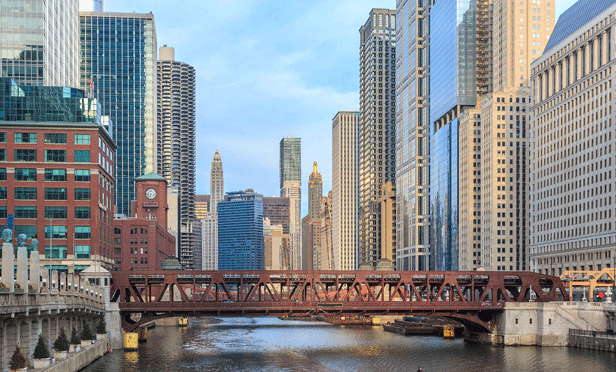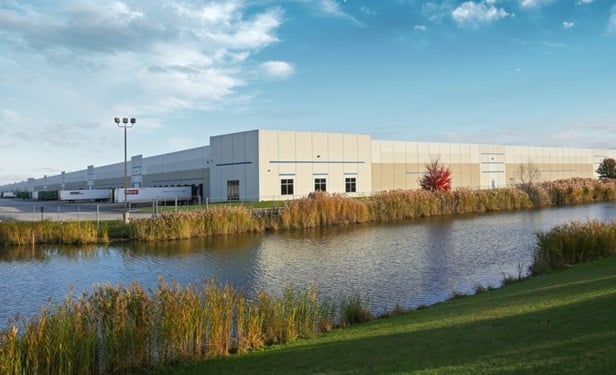 CHICAGO—It's hard to remember a time when thereal estate industry was more consumed with a specific generationthe way it is with millennials. But there is no doubt that theyoung people of today have very different ideas about the best waysto work and live. And their numbers make it imperative tounderstand what they want. A few of the industry's top leaders addressed theissue on Tuesday morning atDLA Piper'sGlobal Real Estate Summit in Chicago.Randall K.Rowe, the chairmanofGreen CourtePartners, led the plenarysession and began by pointing out that by 2019, 50% of theworkforce will be from the millennial generation. He thenaskedOwen D.Thomas, chief executiveofficer ofBostonProperties, what impactthis was having, and what may happen in next few years“If you look at thiscycle,” Thomas said, “virtually all of the net absorption ofoffice space in the country” has been through the activity of firmsstrongly associated with millennials, such as those focused oncreative or high-tech work. “That's been a key driver for thebusiness. All of the rent growth in New York, or a lot of it, hasbeen in Midtown South,” a hub for those sectors. “We all know what a good locationis,” he added, so at least office developers don't need to makemany changes on how they choose sites. But everyone in the marketdoes need to pay more attention to what Thomas called“place,” meaning the types of experiences that millennialemployees would have in their new locations. “You need to haveamenities, either in the building or in the neighborhood.” And,just as important, millennials shun the cookie-cutter style officesof yesteryear. Today, uniqueness is a valued quality. “As an officedeveloper, we are providing the shell, but we also try to supplythe most flexibility possible.”“Changing tastes are changing how we think aboutinvestment,” even for the very long-term, saidFrank Cohen, senior managing director forBlackstone Real EstateAdvisors. He was referringto the penchant that young people have for living in dense urbancores. The most common age for millennials is 26, he pointed out.“They are going to be in these cities for a long time.”Debra A.Cafaro, chairman and chiefexecutive officer ofVentas, Inc., asked the other panelists whether or not theythought this urbanization phenomenon was permanent, or ifmillennials were merely deferring the inevitable move to thesuburbs.Cohen replied that hedid not know where millennials would decide to live once they beginhitting their late 30s. But he does believe that many of thecultural changes brought about by this generation are permanent,and will continue to have a profound impact on the world of realestate. The desire to work in buildings that have what people seeas authenticity, “to be clustered with the people they do businesswith,” and live in walkable environments, among other preferences,are more properly seen as paradigm shifts rather than passingfads.Rowe then wonderedwhether the advent of new technologies would transform howmillennials interact with the world. That desire for walkability,for example, has caused developers to prioritize transit-orienteddevelopment, but what if mass transit could not compete withdriver-less cars and became obsolete?Thomas is skeptical that this is in the cards,and like Cohen, said that many of the factors shaping today'senvironment are more-or-less permanent. “The road infrastructuredoesn't exist,” he pointed out, that would allow the fullexploitation of driver-less technology. “I just have to think thatthe importance of mass transit is going to continue.”
CHICAGO—It's hard to remember a time when thereal estate industry was more consumed with a specific generationthe way it is with millennials. But there is no doubt that theyoung people of today have very different ideas about the best waysto work and live. And their numbers make it imperative tounderstand what they want. A few of the industry's top leaders addressed theissue on Tuesday morning atDLA Piper'sGlobal Real Estate Summit in Chicago.Randall K.Rowe, the chairmanofGreen CourtePartners, led the plenarysession and began by pointing out that by 2019, 50% of theworkforce will be from the millennial generation. He thenaskedOwen D.Thomas, chief executiveofficer ofBostonProperties, what impactthis was having, and what may happen in next few years“If you look at thiscycle,” Thomas said, “virtually all of the net absorption ofoffice space in the country” has been through the activity of firmsstrongly associated with millennials, such as those focused oncreative or high-tech work. “That's been a key driver for thebusiness. All of the rent growth in New York, or a lot of it, hasbeen in Midtown South,” a hub for those sectors. “We all know what a good locationis,” he added, so at least office developers don't need to makemany changes on how they choose sites. But everyone in the marketdoes need to pay more attention to what Thomas called“place,” meaning the types of experiences that millennialemployees would have in their new locations. “You need to haveamenities, either in the building or in the neighborhood.” And,just as important, millennials shun the cookie-cutter style officesof yesteryear. Today, uniqueness is a valued quality. “As an officedeveloper, we are providing the shell, but we also try to supplythe most flexibility possible.”“Changing tastes are changing how we think aboutinvestment,” even for the very long-term, saidFrank Cohen, senior managing director forBlackstone Real EstateAdvisors. He was referringto the penchant that young people have for living in dense urbancores. The most common age for millennials is 26, he pointed out.“They are going to be in these cities for a long time.”Debra A.Cafaro, chairman and chiefexecutive officer ofVentas, Inc., asked the other panelists whether or not theythought this urbanization phenomenon was permanent, or ifmillennials were merely deferring the inevitable move to thesuburbs.Cohen replied that hedid not know where millennials would decide to live once they beginhitting their late 30s. But he does believe that many of thecultural changes brought about by this generation are permanent,and will continue to have a profound impact on the world of realestate. The desire to work in buildings that have what people seeas authenticity, “to be clustered with the people they do businesswith,” and live in walkable environments, among other preferences,are more properly seen as paradigm shifts rather than passingfads.Rowe then wonderedwhether the advent of new technologies would transform howmillennials interact with the world. That desire for walkability,for example, has caused developers to prioritize transit-orienteddevelopment, but what if mass transit could not compete withdriver-less cars and became obsolete?Thomas is skeptical that this is in the cards,and like Cohen, said that many of the factors shaping today'senvironment are more-or-less permanent. “The road infrastructuredoesn't exist,” he pointed out, that would allow the fullexploitation of driver-less technology. “I just have to think thatthe importance of mass transit is going to continue.”
Continue Reading for Free
Register and gain access to:
- Breaking commercial real estate news and analysis, on-site and via our newsletters and custom alerts
- Educational webcasts, white papers, and ebooks from industry thought leaders
- Critical coverage of the property casualty insurance and financial advisory markets on our other ALM sites, PropertyCasualty360 and ThinkAdvisor
*May exclude premium content
Already have an account?
Sign In Now
© 2024 ALM Global, LLC, All Rights Reserved. Request academic re-use from www.copyright.com. All other uses, submit a request to [email protected]. For more information visit Asset & Logo Licensing.








